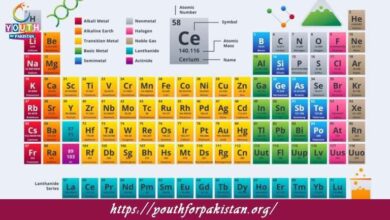12th Class Biology Chapter 24 Quiz with Answers

“12th Class Biology Chapter 24 Quiz: Evolution” discusses the exciting process by which species change over time, resulting in the diversity of life we see today. Evolution explains how organisms adapt to their environments, how new species arise, and how all life on Earth is interconnected. This chapter explores key concepts such as natural selection, speciation, and the evidence supporting evolutionary theory. By understanding these principles, students get insights into the biological changes that have shaped life over millions of years. Strengthen your understanding with our MDCAT Quiz and free flashcards, specifically designed to help you prepare for your exams.
Theories of Evolution
The theory of evolution was first popularized by Charles Darwin in the 19th century, primarily through his book, On the Origin of Species. According to Darwin’s theory of natural selection, organisms with traits that are better suited to their environment are more likely to survive and reproduce, passing on these favorable traits to their offspring. Over generations, this leads to a gradual change in the species.
Another early theory was Lamarckism, which held that organisms could acquire traits in their lifetime and pass them on to their offspring. However, Lamarckism has been largely discredited in favor of Darwinian evolution, which emphasizes genetic inheritance. The development of genetics subsequently helped to explain the mechanism by which evolutionary change occurs at the molecular level—through mutations, recombination, and genetic drift.
MDCAT Quiz: Evolution
We also have an MDCAT Quiz to test your understanding of evolutionary concepts. It will give you questions on critical topics including natural selection, genetic drift, speciation, and the evidence for evolution. You’ll be able to perform well in exams related to these concepts with constant practice.
- Test Name: 12th Class Biology Chapter 24 Quiz
- Type: Quiz Test
- Total Questions: 30
- Total Marks: 30
- Time: 30 minutes
Note: Answer of the questions will change randomly each time you start the test, once you are finished, click the View Results button.
Free Flashcards for Evolution
Review key terms and concepts from the chapter with our free flashcards on evolution. These flashcards cover key topics like fossil records, natural selection, genetic drift, speciation, and homologous structures. Flashcards are a helpful tool for quickly recalling important concepts and preparing for your exams.
Evolution is one of the important bases of modern biology; it explains how life originated and how diverse it is on Earth. The MDCAT Quiz and flashcards will help you understand this chapter even better, so you feel more confident going into your exams.

What is the term for a trait that has evolved for one purpose but is later co-opted for another function?

What is the term for the theory that all living organisms are related by descent from a common ancestor?

What is the term for the process by which species evolve different traits in response to different environmental pressures?

What is the term for the process by which unrelated species evolve similar traits due to similar environmental pressures?

What is the term for the process by which species evolve similar traits independently due to similar environmental pressures?

What is the term for the process by which organisms become better suited to their environment over time?

What is the term for the process by which individuals with traits that are advantageous for their environment tend to survive and reproduce at higher rates?

What is the term for the process by which species evolve in response to changes in each other over time?

What is the term for structures that have different functions but are similar in structure due to shared ancestry?

What is the term for a population or group of populations whose members can interbreed and produce fertile offspring?

What is the name of the mechanism of evolution where individuals with certain traits are more likely to mate and reproduce?

What is the term for the evolutionary change that occurs in a small population due to chance events?

What is the term for the movement of alleles between populations through the migration of individuals?

What is the process by which new species evolve rapidly from a common ancestor into a wide variety of forms?

What is the term for a group of organisms that includes an ancestral species and all of its descendants?

What is the name for structures that have reduced or no function but are similar to functional structures in related organisms?

What is the term for the process of evolution in which two species evolve in response to changes in each other?

What is the term for a diagram that shows the evolutionary relationships among a group of organisms?
Experience the real exam environment with our expertly designed collection of over 25,000 MCQs MDCAT Mock Tests.





